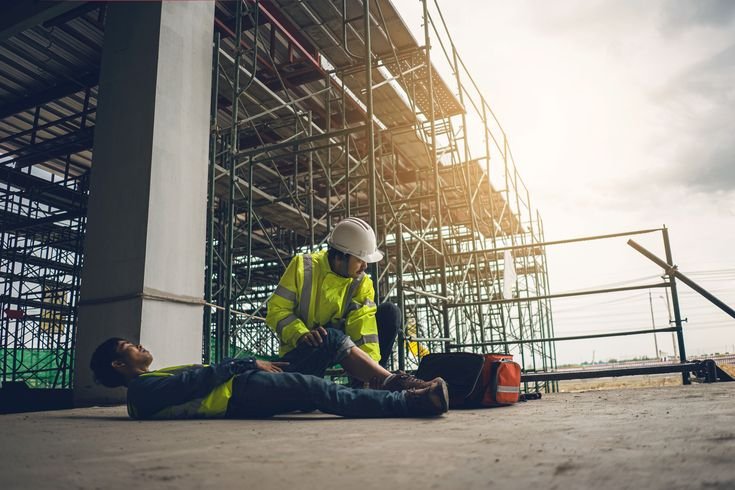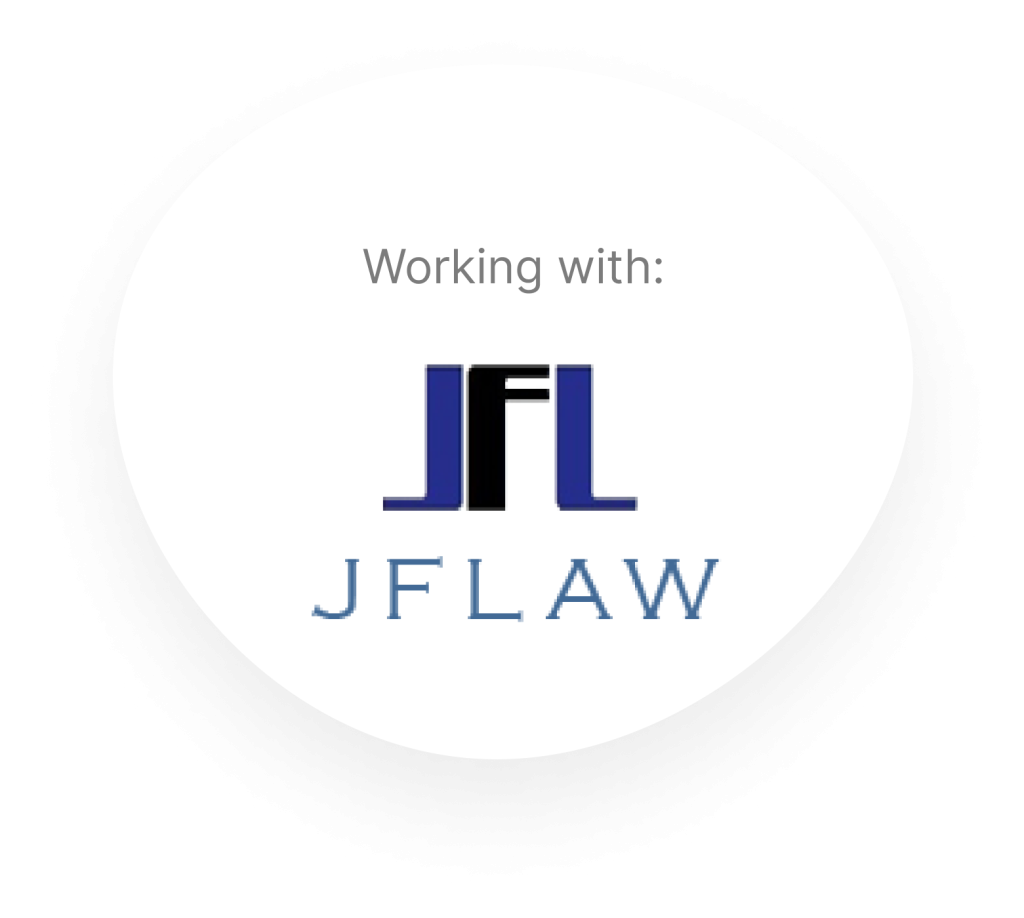Scaffolding Accident Claims
No-win, No-fee claims
Scaffolding is, by its very nature, potentially dangerous, but despite this, accidents that may occur are not just treated as an occupational hazard. Scaffolding involves people working at height and presents specific issues when constructed and taken down. Scaffolding accidents can happen to construction workers, scaffolding companies employed to erect and dismantle scaffolding, and pedestrians on the ground below. Scaffolding injuries range from minor cuts and bruises to more serious injuries associated with falling from height, such as broken bones and head trauma.
Excellent Reviews On

Scaffolding Accident Claims
No Win No Fee
Scaffolding is, by its very nature, potentially dangerous, but despite this, accidents that may occur are not just treated as an occupational hazard. Scaffolding involves people working at height and presents specific issues when constructed and taken down. Scaffolding accidents can happen to construction workers, scaffolding companies employed to erect and dismantle scaffolding, and pedestrians on the ground below. Scaffolding injuries range from minor cuts and bruises to more serious injuries associated with falling from height, such as broken bones and head trauma.
Excellent Reviews On
As featured in:








Types Of Scaffolding Accidents
- Falls from scaffolding structures are a common type of scaffolding accident, often caused by poor safety protocols or equipment failure.
- Scaffolding collapse is another type of accident that can happen, often due to poor or incorrect construction of the tower or maintenance of the scaffolding structure.
- Injuries sustained from falling objects or debris are also common in scaffolding accidents.
The Health and Safety Executive has detailed guidance for construction site owners, scaffolding companies and operatives about safe procedures when working at height. 50% of fatalities at work in 2023/2024 involved falls from height, which also accounts for a high proportion of non-fatal accidents in the workplace.
Why use us?
Free Consultation
we offer a free consultation for anyone looking to make a scaffolding accident compensation claim.
No win, no fee
if your scaffolding accident leads to a successful compensation claim, you won’t have to pay a penny towards your legal fees.
Claim experts
we use expert personal injury solicitors with specialist accident experience and a long track record in scaffolding accident claims. Our personal injury team has represented thousands of people who have suffered a scaffolding accident and want to claim compensation.

Are Workplace Accidents Common?
The Health and Safety Executive (HSE) is an independent body responsible for enforcing health and safety laws in the country. They conduct inspections, issue fines and publish statistics on the rates of injuries and accidents.
Here’s a breakdown of their findings from 2022/2023, the latest available:
- Around 561,000 workers reported suffering an injury
- 135 workers sadly lost their lives in work-related accidents
- As a result of accidents at work, the economy is estimated to have lost 3.7 million working days
- Combined with work-related ill health, such as stress, the total annual cost to the British economy is £20.7 billion
With 561,000 injuries last year, this works out at around 1,537 injuries at work a day, which is a startling figure and one that proves just how common they are.
What Is A Scaffolding Accident Claim?
If you have been injured because of a scaffolding accident, then you may be able to claim compensation. Building site managers are responsible for keeping workers safe on a construction site, and this involves a raft of measures starting with the correct building of the scaffolding, proper maintenance, personal protective equipment, and safe working practices at height.
Other people can make a scaffolding injury claim, for example, passers by who receive scaffolding accident injuries due to falling objects or a failure in some part of the scaffolding tower.
There are, in fact, numerous things that can cause a scaffold accident and that may affect construction site workers, other contractors, and members of the public who are in the vicinity. All of these people can potentially make a scaffolding accident claim if the negligence of the site owner or manager has caused their injuries.
A site owner or manager owes a legal duty of care to their workers as an employer and to members of the public if they have access to the area around the site. Scaffolding accident claims fall within the area of civil law that covers personal injury claims. Consequently, most people who want to start a scaffold accident claim use specialist personal injury solicitors.

How Do I Make A Personal Injury Claim For A Scaffolding Accident?
If you’ve received injuries as the result of a scaffolding accident and want to claim compensation, then you’ll need to be able to show that you are eligible to do so. Here are the specific criteria your scaffolding accident must meet to start a claim.
- If you are a construction worker and have been injured whilst working, then your employer automatically owes you a legal duty of care to provide a safe working environment under the terms of the Health and Safety at Work Act 1974. If you are a member of the public on or near the site, then the site owner owes you a duty of care to ensure that the location is safe and prevent scaffolding accidents. For this reason, many sites are fenced off and have warning signs to keep the public away especially whilst scaffolding is being erected and dismantled. You’ll need to be able to demonstrate that the controller of the land owed you a duty of care.
- Next, to claim compensation for injuries sustained, you must show that the duty of care has been breached. This could be because your employer fails to ensure that the tower was erected properly, the scaffolding collapsed and correct safety protocols were not implemented for workers on scaffolding equipment. The same rule applies to a member of the public who wants to make a scaffolding injury claim.
- The breach of legal duty led to your accident, and the injuries caused or made an existing condition worse.
If you’d like to get a free assessment of your scaffold accident claim, then why not call us for an eligibility check on the number at the top of this page? You can also pop a message through on live chat.
How Easy Is It Making A Scaffolding Accident Claim?
To make an accident at work claim, we’ll need to gather evidence of your scaffold accident, including details about your injuries and any medical treatment you received at the time. As part of the claims process, you will likely need to undergo an independent medical assessment to verify the nature of your injuries and their impact on your daily life.
However, the first thing your personal injury solicitor will need to do is establish that there is a duty of care and that this has been breached; effectively, someone else’s negligence has caused a scaffolding accident, which led to your injuries.
Compensation Bracket: 0.00
Next, your solicitor will need to know how the accident occurred. In accident claims, evidence can come in all shapes and forms, including written reports from your employer’s accident book, witness statements, photographs of the accident scene, and even film footage available from nearby cameras. If the accident has been reported to the Health and Safety Executive, then they will also have a report which you may be able to use as supporting evidence.
In scaffolding accident claims, you can claim for mental and physical injuries arising from the accident. You can also include additional financial losses in your compensation claim, such as reduced income because you can’t return to work and extra expenses for things like private medical treatment and transport to and from appointments.
Sadly, some scaffolding accidents are very serious with life-changing injuries. A compensation claim can, therefore, also reflect future loss and expenses.
Any compensation awarded over and above money for mental and physical injuries is called Special Damages. Your specialist solicitor will want to collect evidence of these additional costs using bank statements, payslips, receipts, and invoices.
How Much Compensation Is Awarded In Scaffolding Accidents?
Scaffolding accident compensation varies as each scaffold accident is unique. Consequently, it’s difficult to provide precise figures for your scaffolding injury. Usually, the more serious the injury, the higher the compensation level. To help guide people in the legal process, the courts, the legal profession, and insurance companies use something called The Judicial College Guidelines, which provide specific ranges of awards for different injuries. Here are some examples: –
- Very severe brain damage caused by a head injury after falling from height may receive an award ranging from £344,150 and £493,000. Severe brain damage is classified as an individual struggling to give a meaningful response to environment, little or no language function, and a requirement for full-time nursing care with permanent damage to mental capacity.
- A moderate neck injury caused by a fall from scaffolding or falling objects can be awarded a compensation payout of between £30,500 and £46,970.
- A simple fracture of the forearm, which may be caused by a fall from height by a worker or a simple trip and fall on uneven surfaces around the scaffolding, can be awarded compensation ranging from £8,060 to £23,430.
- Moderately Severe Post Traumatic Stress Disorder, which can be associated with certain types of scaffolding accident claims, can receive a payout ranging from £28,250 to £78,050. This type of PTSD is classified by ongoing and significant disability and a requirement for professional help to to aid recovery.
If you’re interested in starting a claim for compensation, use our scaffold accident claim calculator, which will give you an idea of how much compensation you could be awarded based on your injuries.
If you are partly responsible for your accident, you can still make a compensation claim, but the amount you receive may be reduced in proportion to the part you played in the accident.
Scaffolding Accident Claims FAQs
Below we’ll answer common questions regarding scaffolding accidents.
My Child Was Injured By Falling Objects From Scaffolding Equipment. How Can I Claim Compensation On Their Behalf?
Children under the age of eighteen cannot legally bring a claim in their own right. Usually, any claims are started by a parent who is known as their litigation friend.
How Long Do I Have To Bring A Compensation Claim?
There is a limitation period for personal injury claims and this is three years from the date of the accident or three years from the date on which you became aware of your injury. For children under the age of eighteen (called minors), the three-year limitation period does not start to run until they reach their eighteenth birthday.
If The Health And Safety Executive Are Involved After My Accident, Will They Bring A Claim For Compensation On My Behalf?
In certain scenarios, accidents must be reported to the HSE, who may conduct their own investigation and sometimes prosecute the person or company responsible. The HSE won’t bring a personal claim on your behalf. However, their investigation will make it easier for you to pursue a successful claim if they find evidence of employer negligence or poor management that has caused issues with public safety.
If I Am Partly Responsible For My Accident, How Will This Impact My Claim?
If, for example, you had a fall from the scaffolding equipment and received a head injury due to the failure of your employer to ensure that the tower had been erected properly, then you are entitled to bring a compensation claim. If, however, your head injury was made worse because, on that day, you chose not to wear a hard hat in line with company policy, then the court and insurers would have to determine how much worse this has made your injury. If you are partly to blame for your accident, then any compensation award will be reduced proportionally to reflect this. The devil is, of course, in the detail and arguments over these points can be long and complex.
Can I Carry On Working For My Employer If I Start A Claim Against Them?
Yes, you can carry on working for them. It is likely that their insurers will meet any compensation payout awarded in your favour and against your employer. There is also legislation in place that makes it illegal for them to sack you, discriminate against you, or treat you differently because you are bringing a claim.
How Long Do Compensation Claims Take To Reach An Outcome?
In straightforward cases, compensation claims can be resolved within several weeks or just a few months. However, if a claimant has suffered severe and life-changing injuries, then compensation claims can often run on for years. This is because the full extent of disability may not be known for a long time. In these cases, the court and insurers will arrange for interim payments which are part sums of the final compensation award, and are paid to ease financial hardship. These can be used to cover lost income and extra expenses for things like adjustments to the claimant’s home or the cost of nursing care or private medical treatment. These amounts are deducted from the final compensation award.
Can I Claim Compensation If I Am On Site As A Self-Employed Contractor?
Large building projects often rely on a chain of contractors and sub-contractors to carry out different specialist tasks on the construction site. The project owner or manager still has a legal duty of care to ensure your safety whilst on site and working at height and that scaffolding is appropriately constructed and managed. Even if you are self-employed, you can still make a scaffolding accident claim.
Do I Need To Instruct Personal Injury Solicitors To Make A Personal Injury Compensation Claim?
If you’ve suffered injuries in a scaffolding accident, then the last thing you want is to have the stress and worry of managing a personal injury claim on top of everything else; you should be focusing on your recovery and trying to get back to everyday life. Personal injury claims can be quite complex, and the process is daunting for most people without prior legal knowledge. Specialist solicitors can handle the claim for you so you can concentrate on getting better. They won’t agree to any settlement figures without your prior approval. Even if your claim is unsuccessful, you still won’t have to pay a penny in legal fees.
Can I Claim More Compensation Because The Health And Safety Executive Are Involved In My Claim?
The Health and Safety Executive (HSE) may investigate your accident if it’s very serious or results in a fatality. Employers must report specific workplace incidents under UK legislation called RIDDOR (The Reporting of Injuries, Diseases and Dangerous Occurrences Regulations 2013). Depending on what they discover, the HSE may conduct its own investigation alongside your claim and could prosecute your employer or the site owner. This won’t mean you can win a higher compensation award but it will help your personal injury team to demonstrate the level of negligence and culpability of your employer or the person who owed you a duty of care.
Will I Have To Pay Legal Fees If My Case Goes To Court?
No, you won’t, as your no win no fee agreement (also called a Conditional Fee Agreement) covers all your legal costs whether you go to court or not. Your solicitor’s fee, called a success fee, is taken as a percentage of any compensation award. This fee is agreed at the outset and is capped by law in the UK to a maximum of 25%. Some solicitors charge considerably less than 25%. If you don’t win any compensation then your solicitor will not receive a fee. Always read the fee agreement thoroughly before you sign it and instruct a solicitor to act on your behalf.


